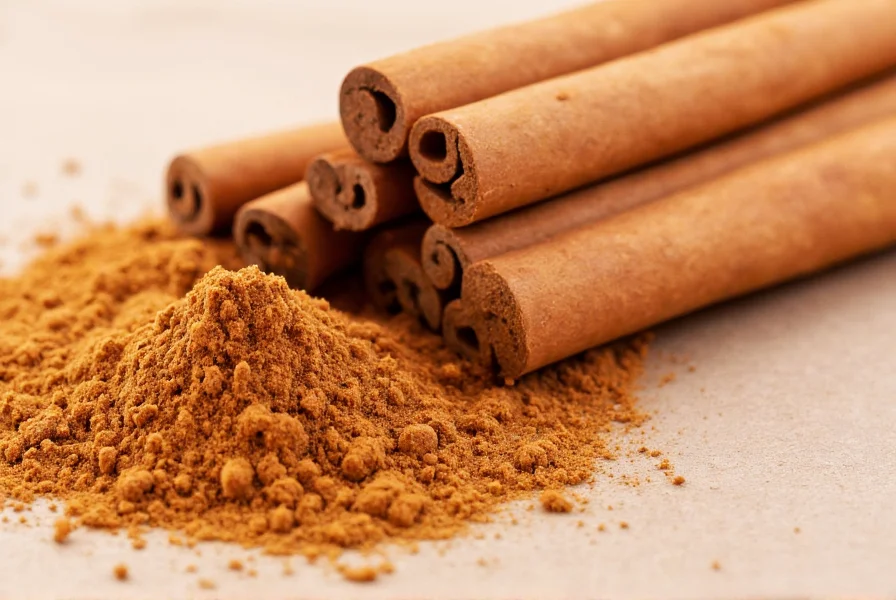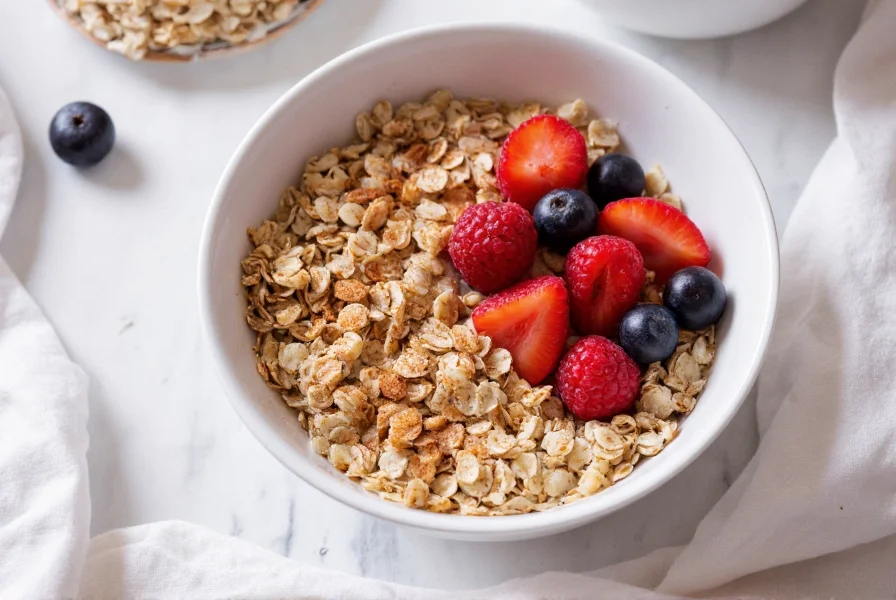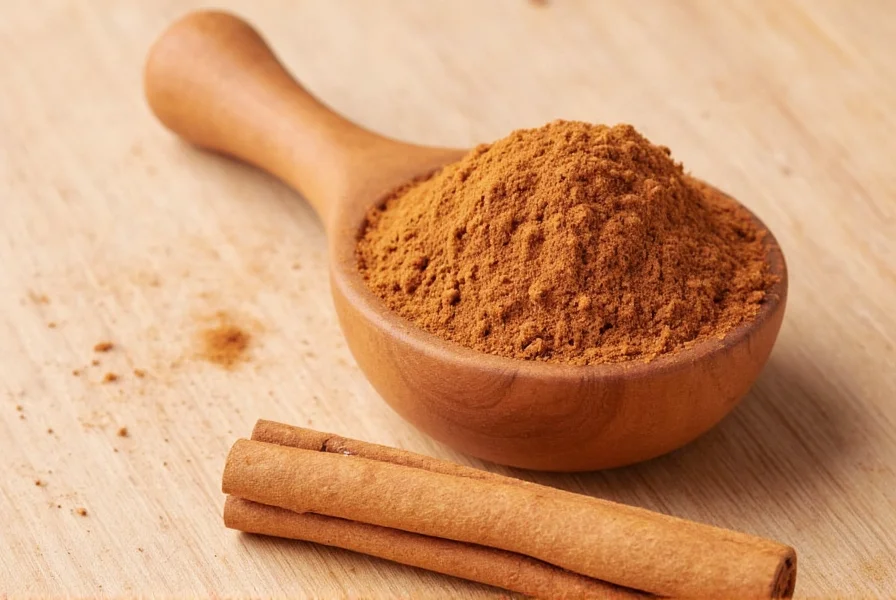For centuries, cinnamon has been prized not just for its warm, sweet flavor but for its potential health-promoting properties. Modern research continues to validate many traditional uses while revealing new insights about how this common spice interacts with human physiology. Unlike many wellness trends, cinnamon's benefits are supported by a growing body of scientific evidence spanning multiple health domains.
Science-Backed Health Benefits of Cinnamon
Multiple clinical studies have examined cinnamon's physiological effects. The most compelling evidence supports its role in metabolic health, particularly for individuals managing blood sugar levels. A comprehensive review published in the Journal of Medicinal Food analyzed multiple human trials and found that cinnamon consumption significantly reduced fasting blood glucose levels across various populations.
| Health Benefit | Scientific Evidence Level | Recommended Daily Amount |
|---|---|---|
| Blood sugar regulation | Strong (multiple human trials) | 1-6 grams |
| Antioxidant protection | Strong (in vitro and animal studies) | No established limit |
| Anti-inflammatory effects | Moderate (human and animal studies) | 2-4 grams |
| Heart health support | Promising (human trials) | 1-3 grams |
Understanding Cinnamon's Metabolic Effects
What can cinnamon do for your body regarding blood sugar management? The spice appears to work through multiple mechanisms. Research indicates cinnamon contains compounds that mimic insulin, enhancing glucose uptake by cells. It also slows gastric emptying and inhibits enzymes involved in carbohydrate metabolism, reducing post-meal blood sugar spikes. These effects make cinnamon particularly relevant for what are the health benefits of cinnamon for the body in metabolic contexts.
A study in Diabetes Care demonstrated that just 1-6 grams of cinnamon daily reduced serum glucose, triglycerides, LDL cholesterol, and total cholesterol in people with type 2 diabetes. These findings suggest cinnamon anti-inflammatory effects on the body extend to metabolic pathways, potentially benefiting cardiovascular health through multiple channels.

Cinnamon Types and Safety Considerations
Not all cinnamon delivers the same health profile. Understanding the difference between ceylon and cassia cinnamon is crucial for safe consumption. Cassia (the common supermarket variety) contains significant coumarin, which in excess may cause liver damage. Ceylon cinnamon, sometimes called "true cinnamon," contains dramatically lower coumarin levels, making it safer for regular consumption.
The European Food Safety Authority established a tolerable daily intake of 0.1 mg of coumarin per kilogram of body weight. For a 150-pound person, this translates to approximately:
- Cassia cinnamon: Maximum 0.5-1 gram daily
- Ceylon cinnamon: Up to 2-4 grams daily
When considering how does cinnamon affect blood sugar levels long-term, researchers note that while short-term studies show promise, more longitudinal research is needed. Cinnamon should never replace prescribed diabetes medications but may serve as a complementary approach under medical supervision.
Practical Applications for Daily Health
Incorporating cinnamon into your diet offers a simple way to potentially enhance your health regimen. The safe daily amount of cinnamon consumption depends on the variety you choose. For Cassia, limit to half a teaspoon (about 1 gram) daily. For Ceylon, you can safely consume up to 1-2 teaspoons (2-4 grams).
Try these practical applications:
- Add to morning oatmeal or smoothies
- Use in place of sugar in coffee or tea
- Include in savory dishes like curries and stews
- Make cinnamon tea by steeping sticks in hot water
Remember that cinnamon works best as part of an overall healthy lifestyle. Its effects on the body accumulate gradually rather than providing immediate results. Consistent, moderate consumption yields the most significant benefits according to current research on what can cinnamon do for your body over time.

Limitations and Research Gaps
While the evidence for cinnamon's health benefits is promising, important limitations exist. Most studies use concentrated extracts rather than culinary amounts, making real-world effects potentially less pronounced. Individual responses vary significantly based on genetics, existing health conditions, and overall diet.
Researchers emphasize that cinnamon should complement—not replace—established medical treatments. Those taking blood thinners should consult their physician before consuming therapeutic amounts, as cinnamon may interact with these medications. Pregnant women should also moderate intake due to limited safety data.
Conclusion
Cinnamon represents a compelling example of how traditional foods may offer genuine health benefits when consumed appropriately. The science behind what cinnamon can do for your body continues to evolve, with metabolic health showing the strongest evidence base. By choosing Ceylon variety and consuming within safe limits, you can potentially harness cinnamon's antioxidant, anti-inflammatory, and blood sugar-regulating properties as part of a balanced approach to wellness.
Frequently Asked Questions
How much cinnamon should I take daily for health benefits?
For Ceylon cinnamon (true cinnamon), 0.5-2 grams (about 1/4 to 1 teaspoon) daily provides benefits with minimal risk. Cassia cinnamon should be limited to 0.5-1 gram daily due to higher coumarin content. Always consult your healthcare provider before using cinnamon therapeutically, especially if you have liver conditions or take medications.
Can cinnamon lower blood sugar immediately after eating?
Research shows cinnamon may help moderate post-meal blood sugar spikes when consumed with carbohydrate-containing meals, but it doesn't cause immediate drops. Studies indicate effects on blood sugar regulation build with consistent daily use over weeks. Cinnamon works through multiple mechanisms including slowing gastric emptying and enhancing insulin sensitivity, rather than providing rapid blood sugar reduction.
Is there a difference between Ceylon and Cassia cinnamon for health benefits?
Both types offer similar antioxidant and anti-inflammatory compounds, but Ceylon cinnamon contains significantly less coumarin—a compound that may cause liver issues in high amounts. For regular consumption, Ceylon is safer. Most clinical studies demonstrating health benefits used Cassia, but researchers are increasingly examining Ceylon due to its better safety profile for long-term use.
Can cinnamon help with weight loss?
While cinnamon isn't a weight loss solution, it may support metabolic health in ways that complement weight management efforts. By potentially improving insulin sensitivity and reducing blood sugar spikes, cinnamon might help control cravings and reduce fat storage. However, no substantial evidence shows cinnamon directly causes weight loss when consumed in normal culinary amounts.
How long does it take to see cinnamon's health effects?
Most studies showing measurable benefits used cinnamon consistently for 4-12 weeks. Blood sugar improvements typically become noticeable after 2-4 weeks of daily consumption. Antioxidant effects may occur more quickly, but many benefits accumulate gradually. Individual responses vary based on dosage, cinnamon type, baseline health status, and overall diet and lifestyle factors.











 浙公网安备
33010002000092号
浙公网安备
33010002000092号 浙B2-20120091-4
浙B2-20120091-4